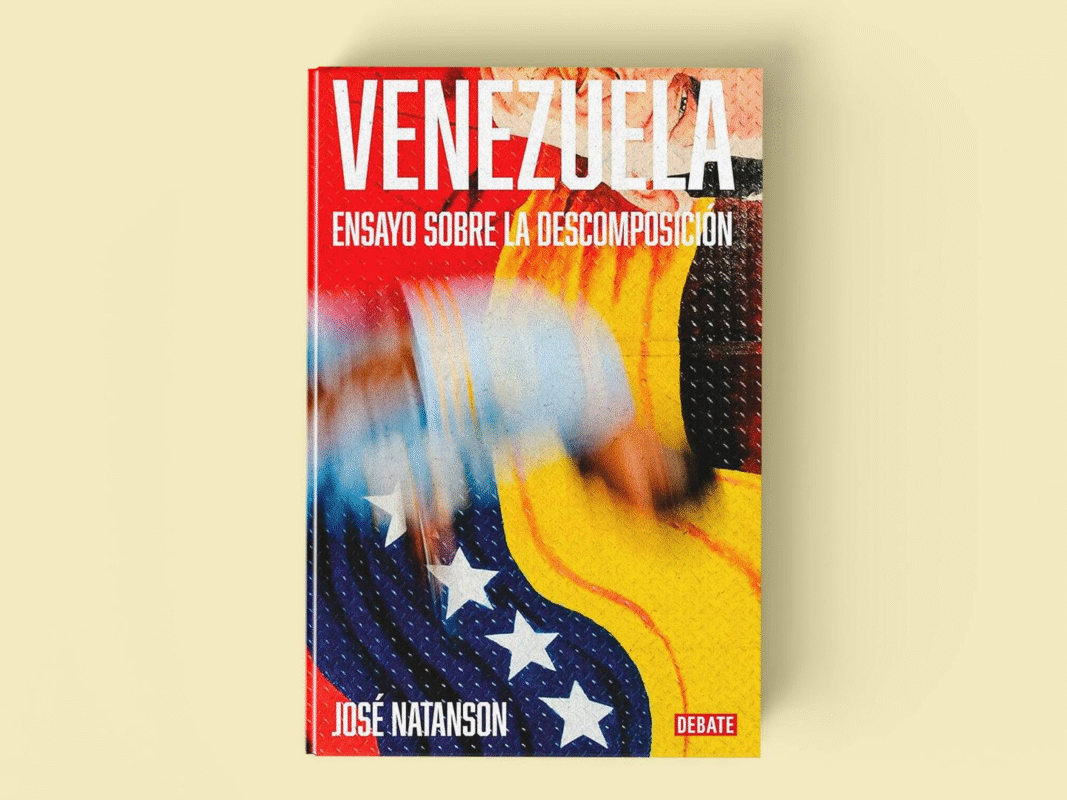The Argentine journalist, political scientist, and writer specializing in Latin American political reality, José Natanson, makes a very clear promise at the beginning of his book “Venezuela: ensayo sobre la descomposición” (Venezuela: Essay on Decomposition, no English traslation yet) (Debate, 2024). He says he wrote it to “understand the ‘Venezuelan problem’ from different angles, put it in context, reconstruct its history, and define its singularity.”
The text does not fall short of its objective; it achieves it very broadly, a result of the fact that it is not only a well-documented essay, but also that he was in Venezuela to speak directly with people in Petare and Antímano, with economists, intellectuals, and saw firsthand how life is lived in the country that, between Hugo Chávez and Nicolás Maduro, has been under Chavista rule for 26 years.
You don’t have to Google much to know that Natanson (director of Le Monde Diplomatique for the Southern Cone) is a left-leaning intellectual and that one of the reasons for his essay is to explain to that ideological sector in Latin America the place occupied by the current Venezuelan government within the framework of progressive ideas: “Venezuela has become the scarecrow of Latin American politics, the case that for the right summarizes ‘what the left is capable of’.” And he states that the threat of “Venezuelanization” now frightens more than the antiquated “Cubanization.”
Natanson cited academic articles, interviewed experts (and had them review the draft of the book), read novels, and walked the streets to try to give the world a coherent explanation of what is happening in Venezuela. Except for occasional slips with some dates, quotes, or figures, which in no way overshadow the macro work of the text, the journalist exhibits very careful precision that even allows one to affirm that the book is a recommended starting point for those who want to delve into the “Venezuelan problem” (including Venezuelans themselves).
A central issue of the essay is that it avoids calling Maduro’s government a dictatorship (at least not a “classic” one) and argues that it is a “chaotic authoritarianism,” a concept he takes from Pablo Stefanoni and asserts that it is “a system in which the authoritarian will of the government clashes with the fragility of the State and the weakness of its bureaucracy, inefficiency, and corruption.”
In practical terms, the government of Venezuela “improvises without adhering to a pre-designed model, a roadmap, or a revolutionary project” while “chaos is not an accident or an unwanted result, but the paradoxical condition of possibility for political stability and the validity of the authoritarian model.”
The director of Le Monde Diplomatique for the Southern Cone does not defend Maduro (he does Chávez, although he doesn’t shy away from the fact that he was “somewhat authoritarian”). He points out the opposition’s mistakes, highlights the violation of human rights based on the 2019 report by the United Nations High Commissioner for Human Rights, Michelle Bachelet, talks about illicit economies, inequality, consumption bubbles, but downplays the massive migration somewhat because he believes it “is not a rarity, nor the most extreme case; in absolute terms, 12 million Mexicans live outside their country, and in relative terms, El Salvador has expelled 25% of its population.” What weakens this assessment is that in neither of those two nations did it occur in such a short time as in the Venezuelan case (less than a decade).
One of the few shortcomings of the text is that it does not delve sufficiently into the influence of Cuba and its role in the decomposition. Furthermore, it states that the opposition blocked the renegotiation of the external debt in 2017 (Maduro’s government never presented that operation to the National Assembly, and by the time it was proposed, the National Constituent Assembly was already usurping its functions. What was rejected was the announcement that negotiations would go ahead, as well as the indebtedness using Citgo’s shares as collateral, which were pledged to bondholders and to the Russian company Rosneft in 2016).
Another detail is that it points out that due to sanctions, “billions of dollars in Venezuelan assets abroad were withheld, which the government could have sold to face the financial strangulation.” That is a half-truth, because the evidence shows that by the date of the financial sanctions (2017), Maduro had already liquidated a good part of the monetary gold, had used unconditioned money available in the International Monetary Fund (IMF), and had mortgaged Citgo.
In conclusion, “Venezuela: ensayo sobre la descomposición” (Debate, 2024) is an orderly and well-documented effort that provides an overview of what has been happening in the country since 1999. It is a very good starting point for the curious (from academia or in general), Venezuelans who want to reflect on what we have experienced in these 26 years, and for those who want to have data and processes of the Chavista debacle at hand.

